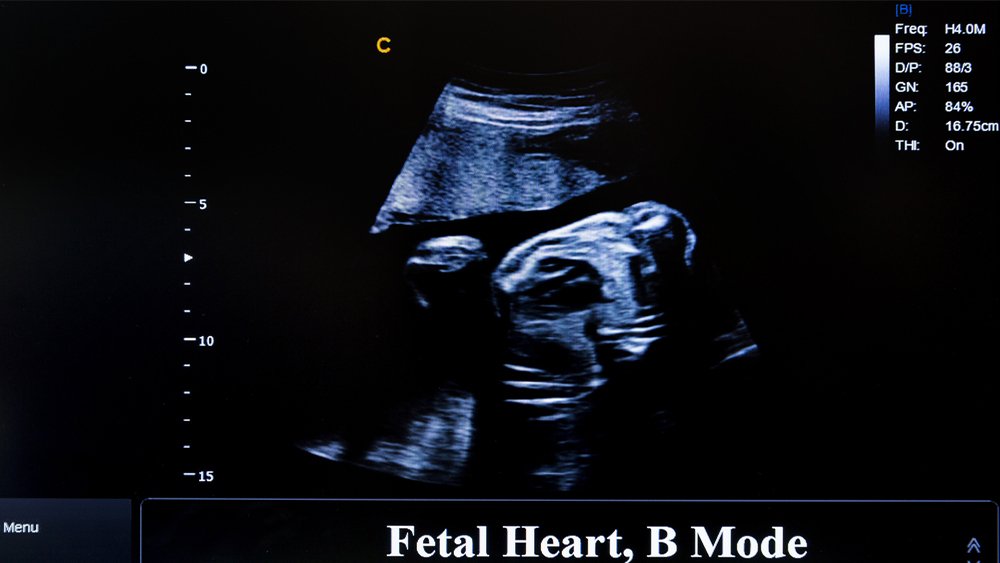
Fetal echocardiography, also known as fetal echo, is a specialized ultrasound test performed during pregnancy to evaluate the structure and function of the unborn baby’s heart. It uses sound waves to create detailed images of the heart, allowing doctors to detect any abnormalities or defects before birth.
Here’s how it works:
During the test: A pregnant woman lies on an exam table, and a gel is applied to her abdomen. A transducer, which is a handheld device that emits sound waves, is then moved across the abdomen to capture images of the baby’s heart. The test usually takes 30 to 45 minutes.
Fetal Echocardiography procedure
What it can reveal: Fetal echo can provide valuable information about the baby’s heart,
including:
- The size and shape of the heart chambers
- The thickness and movement of the heart walls
- The presence of any valves or blood vessel abnormalities
- The heart rhythm and blood flow
Benefits: Early detection of heart defects allows for:
- Planning for delivery and treatment: If a serious heart defect is found, doctors can plan for delivery at a specialized center with a team experienced in caring for newborns with heart problems. In some cases, fetal intervention may be possible, such as administering medications or performing a procedure to address the defect before birth.
- Preparing parents: Knowing about a heart defect before birth can give parents time to learn about the condition and make informed decisions about their care options.
- Reducing anxiety: For many parents, knowing that their baby’s heart is healthy can provide significant peace of mind.
Who needs it: Fetal echo is typically recommended for women who have:
- A personal or family history of congenital heart defects
- Certain medical conditions, such as diabetes or lupus
- Abnormal findings on a routine prenatal ultrasound
- Multiple fetuses (twins, triplets, etc.)
Safety: Fetal echo is a safe and non-invasive procedure for both the mother and the baby. There are no known risks associated with the test.
If you have any questions or concerns about fetal echo, talk to your doctor.


